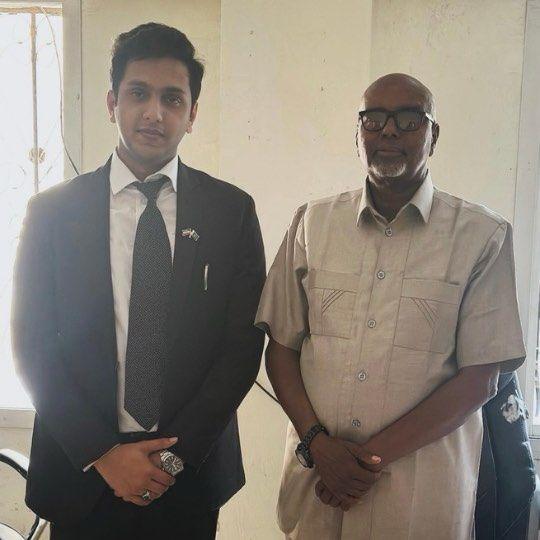By Mohamed Aden Daud
(Somaliland)
Hargeisa: The election of Donald Trump as president of the United States has sparked significant discussions about the future of Somaliland’s quest for international recognition. Under Trump’s leadership, the Republican Party is expected to adopt a foreign policy that could bring greater attention to Somaliland and potentially pave the way for its recognition as an independent state.
During President Muse Bihi Abdi’s visit to the U.S., which followed a formal invitation from the Republican Party, the relationship between Somaliland and the United States grew notably stronger. Bihi’s speech, delivered in front of U.S. lawmakers and officials, emphasized Somaliland’s commitment to democratic values and regional stability, making a case for recognition. This visit was followed by increased engagement from U.S. political delegations, marking a significant shift in diplomatic relations.
Trump’s administration, known for its strategic focus on countering China’s growing influence in Africa, may find Somaliland’s strategic location in the Horn of Africa appealing. Its proximity to the Bab el-Mandeb Strait, a critical shipping route, makes it a key player in global geopolitics. Furthermore, discussions within the Republican Party about establishing a U.S. military base in Somaliland reflect the growing importance of the region in U.S. foreign policy.
The idea of recognizing Somaliland’s independence has gained traction among Republicans, many of whom view it as a way to counterbalance Somalia’s longstanding instability and to establish stronger ties with a democratic, self-governing entity. Given the Party’s support for Taiwan—another self-declared republic—there is a clear ideological alignment with Somaliland’s pursuit of self-determination.
Should the U.S. take action toward recognizing Somaliland, it would mark a dramatic shift in U.S. foreign policy in the Horn of Africa, and could influence other nations to follow suit. This move would also carry significant diplomatic implications, particularly with Somalia, which opposes Somaliland’s independence. The Somali government, which receives financial and political support from the Biden administration, is likely to view any U.S. recognition of Somaliland as a direct challenge to its territorial integrity.
In summary, Trump’s election signals a potential turning point for Somaliland’s international recognition. With Republican support growing and a strategic interest in the Horn of Africa, the U.S. could play a pivotal role in shaping Somaliland’s future as an independent nation, while also redefining its broader geopolitical strategy in Africa.






This Post Has One Comment
Your writing is like a breath of fresh air in the often stale world of online content. Your unique perspective and engaging style set you apart from the crowd. Thank you for sharing your talents with us.